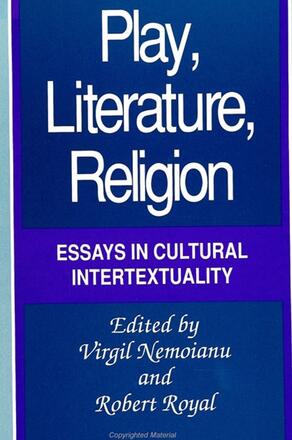
Play, Literature, Religion
Essays in Cultural Intertextuality
Alternative formats available from:
Description
By using the concept of play as a common denominator, this book outlines ways in which literary creativity can act as a free, open, and speculatively unburdened version of religious concerns. Contributors include Louis Dupré, Arthur Quinn, Sanford Budick, Giuseppe Mazzotta, Judah Goldin, and Jean-Michel Heimonet.
Virgil Nemoianu is Professor of English and Comparative Literature at the Catholic University of America. He is the author of A Theory of the Secondary; Literature, Progress and Reaction; and The Hospitable Canon, as well as coeditor of Essays on Literary Play, Scholarly Choice and Popular Pressures with Robert Royal. Robert Royal is Vice President for Research and John M. Olin Fellow in Religion and Society at the Ethics and Public Policy Center in Washington, DC. He is coeditor of A Century of Catholic Social Thought with George Weigel.
Reviews
"I am 'bowled over' by the brilliant synthesizing essays by Nemoianu and Dupré, which tie together large, important realms of contemporary theory and cultural history; and by the verve with which the other contributors relate major subjects and authors to the core or nexus: the 'play concept. ' The book breaks open into exciting new territory and pulls together a host of inherited forces, contemporary impulses, and deeper trends. While cutting across facets of European civilizations, the authors suggest innumerable points of linkage for experts who are concerned with other great civilizations.
"The idea of divine 'play' is an element that recurs with bursts of creative energy over the centuries in several civilizations. By concentrating on Western modes, the book succeeds in suggesting leads for inter-civilizational comparisons without losing coherence. It offers the indispensable historical depth for dealing with the topic, but half its chapters expand in detail upon major figures and relationships in the modern period. It is central to a grasp of modernism. " — Gerald Gillespie, Stanford University